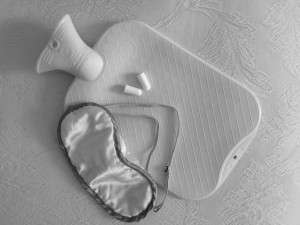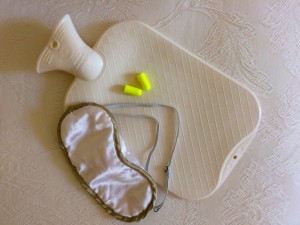We spend around a third of our lives asleep. Or rather, we should. But from Pope Paul to Marilyn Monroe and Keith Moon, Macbeth to Groucho Marx and Margaret Thatcher, the history of mankind is the history of insomnia. And a recent report for the Royal Society for Public Health says it’s a UK-wide problem.
A survey of 2,000 adults found that the average person loses about an hour’s sleep a night, thus an entire night each week, and a whopping 52 days every year. The average kip is 6.8 hours a night, compared with the 7.7 people feel they need. No wonder we are irritable, have car accidents and drink coffee from cartons the size of pedal bins.
Around half those surveyed said the knock-on effect was feeling stressed and about a third said they ate unhealthy food. Unsurprisingly, parents, commuters, shift workers, party animals and young people are among the most sleep-deprived. Groups that encompass practically everyone I know, of all ages.
In response, the RSPH is calling for a government-led national sleep strategy, routine sleep screening in health care, and guidance on how many hours’ sleep people should be getting.
The suggested “slumber number” increases the younger you are, peaking at 11-14 hours for babies, averaging at 7-9 hours for 18-to-64-year-olds, and then decreasing to 7-8 hours for people aged 65 and above. Which explains why my retired parents often text me at dawn. Bless them.
I think most adults are aware that they should sleep for around eight hours a night. What I think is worth emphasising is just why it is so important.
RSPH chief executive Shirley Cramer sums it up: “Good sleep can cure many of the public’s ills, and lack of it is linked to a string of unhealthy behaviours and some of our leading preventable diseases.” These include obesity, heart disease and diabetes, as well as a shortened life expectancy. It is also a precursor to depression and mental illness. How so?

Sleep on it: proper rest can help ward off weight gain, heart disease, diabetes, depression and mental illness
US scientists think sleep deprivation alters chemicals in the brain, leading to junk food binges that can result in obesity and its consequent ailments. Thus, low sleep can bring on an attack of the “munchies,” similar to the effects of smoking cannabis.
Chemicals for appetite are boosted as well as those that increase the pleasure of eating sweet or salty high-fat foods much more than eating healthy ones. Which finally explains why they ate pilchards and condensed milk at midnight feasts in the boarding school books of my childhood.
The researchers claim that, after several nights’ poor sleep, healthy volunteers in one study chose snacks containing an average 300 extra calories and nearly twice as much fat than ones they preferred after good sleep for the same period.
In a nutshell, a lack of shut-eye can result in hitting the fridge and then the couch, rather than the sack and then the gym. This fridge could also include alcohol, which is not only a dehydrating depressant, it is also loaded with extra calories.
Consider too the cost of all this. In November 2014, a report found that obesity is a greater burden on the UK’s economy than armed violence, war and terrorism, costing the country nearly £47 billion a year. As a preventable condition, imagine what we could all do with that as tax relief. I would go to bed earlier, for a start.
There is no escaping the fact that, to function properly, most people need moreorless eight hours’ good quality sleep. The answer is to find out how much you need and then try to achieve it. Perhaps go to bed at 10 o’clock every night for a week, set your alarm for 6am, and then adjust the time frame to suit you.
Personally, my inner chimp goes ape unless I have 7.5 hours’ sleep. After years of insomnia, irregular work shifts and a breakneck social life, I now retire before midnight and wake with the relative serenity of the Dalai Lama. I am also much more productive.
For other insomniacs, I recommend some exercise after dinner such as a quick run, walk the dog, or pedal an exercise bike while watching some light TV. The chance to empty my mind, let the endorphins flow, feel a sense of achievement and then relax in a hot shower all work for me, but each to their own.
Well, it’s now after 11pm. So I’ll bid you a very good night.


Comments are closed.